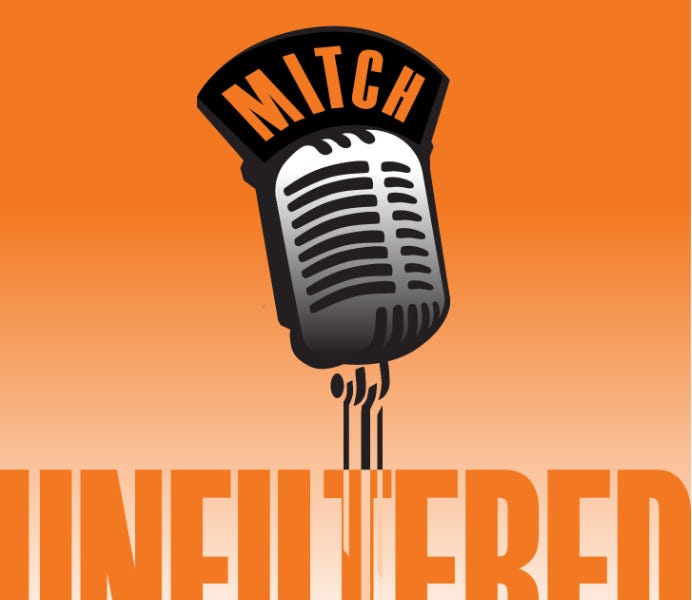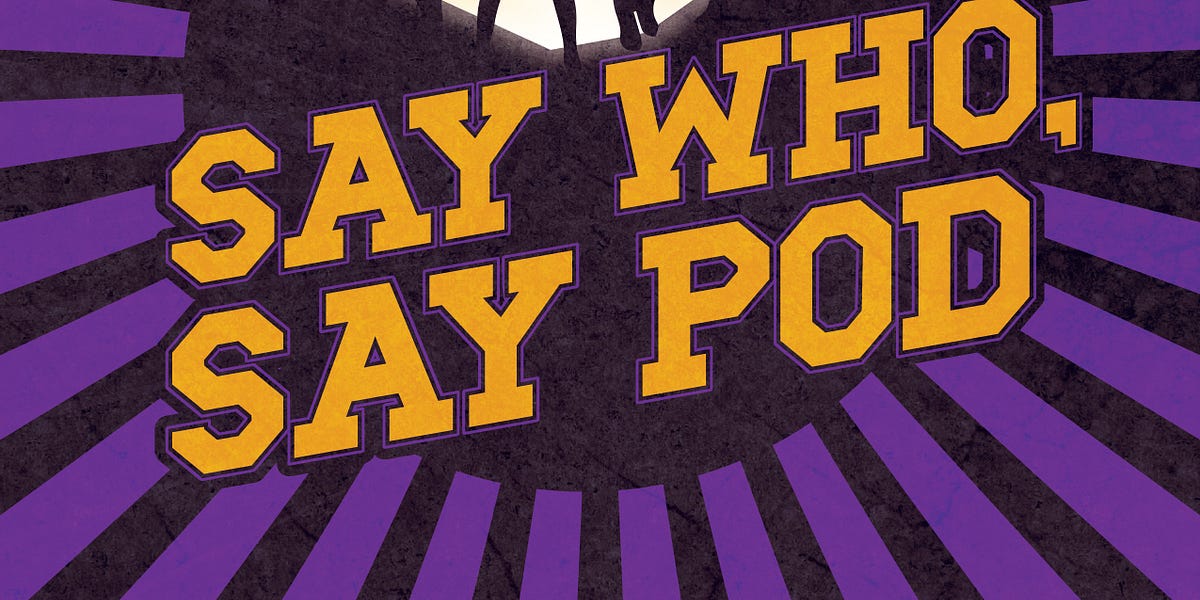- The Dang Apostrophe
- Posts
- Nobody move, nobody gets hurt
Nobody move, nobody gets hurt
Seems like that's the Mariners M.O. for an offseason that is most noteable for the lack of transactions by the local baseball team.
With the conclusion of the football seasons for both the Seattle Seahawks and the Washington Huskies, I thought it was time to catch up on all the changes the Mariners have made.
In fact, I put together a graphic:

Get it? It’s a big chump of empty white space serving as what do you call it, a metaphor?
Fortunately, I’m not the kind of person who starts typing in all caps about the lack of activity. Just because the Mariners haven’t done anything doesn’t mean they won’t do anything. However, my experience in following this franchise — especially recently — means that I don’t have much faith that this is some sort of “Braveheart” strategy with Jerry Dipoto playing the part of William Wallace and commanding his men hold … Hold! … HOLD! before revealing their battle-winning strategy.
As a quick aside: Remember when they tried to do “American Braveheart”? I mean, it wasn’t called that. It was called “The Patriot.” Didn’t have quite the same impact. Probably because of the lack of kilts.
OK, let’s cover a little bit of ground before we get back to the Mariners.


Candidates for Seattle’s offensive coordinator have started to bubble up through the league’s informational ecosystem (i.e. the media):
Hank Fraley, Detroit’s O-Line coach (Albert Breer, Sports Illustrated)
Thomas Brown, Chicago’s interim head coach (Tom Peliserro, NFL.com)
Klint Kubiak, New Orleans offensive coordinator (Jeremy Fowler, ESPN)
As a veteran journalist, I am well-versed in all of the ways to pad out a report such as this. You talk about Fraley being connected to Detroit’s powerful run game these past few years while acknowledging that Detroit also has one of the better offensive lines in the league with right tackle Penei Sewell being one of the better players in the league regardless of position.
You would then move on to Brown being someone who was in a tough situation in Chicago, working for an offensive coordinator who was fired midway through the season, and then having to step in as interim head coach after Matt Eberflus was fired following the Thanksgiving day clock debacle.
Then there’s Klint Kubiak, who is (distantly) related to the Kyle Shanahan coaching tree in the sense that Kyle’s first OC job was working for Gary Kubiak (Klint’s dad) in Houston more than 10 years ago.

Frequent readers of this space know that I have developed something of a penchant for scrutinizing game management at the end of halves.
One of the reasons for this is how enraging it can be for me to listen to football announcers spew complete and utter nonsense about what approaches a team is considering or even advocating a specific course of action that makes absolutely no sense.
I’m not talking about Tony Romo, Tom Brady or Greg Olsen. They’re all excellent. Tiki Barber? Not so much. But it’s the college guys who REALLY struggle. Kirk Herbstreit is painfully stupid about clock management, but Greg McElroy seems determined to give him a run for his money for offering the most misguided advice.
In Thursday night’s college football semifinal between Notre Dame and Penn State, with the score tied in the final minute, McElroy became completely hung up on the idea that Notre Dame was going to score a touchdown too quickly:
Greg McElroy was adamant that, with 28 seconds left, Notre Dame should avoid scoring a touchdown at all costs.
— Awful Announcing (@awfulannouncing)
5:21 AM • Jan 10, 2025
“One thing now that Marcus Freeman can also acknowledge at some point here is, ‘Hey, we don’t want to score too quick here,’ “ McElroy said.
When McElroy said this, Notre Dame was facing second-and-5 at the Penn State 37. There were 28 seconds left, Penn State had two timeouts.
“So if you break free,” McElroy said.
The play-by-play announcer, Sean McDonough, tried to save him.
“Well, I think they’re playing for the field goal,” McDonough said. “They’re going to run a couple more plays and try and kick it on fourth down if it works out that way.
“Or get another first down and kick it on what they hope will be the last play.”
McElroy declined the lifeline: “If you break free — and right there Riley Leonard wasn’t far from potentially squeaking there and maybe finding some open space — a reminder, ‘Guys, no need to score a touchdown. You need to kneel on it at the 3-yard line, and we take a couple of more knees, no problem. DO NOT find the end zone here to give Penn State a chance to go down and potentially tie it with their own touchdown.”
There are a couple of reasons this is stupid:
Notre Dame was not yet in position for a field goal. The Irish were at the Penn State 37, which translates to a 54-yard field-goal attempt. The biggest priority is gaining more yards.
Of all the teams in the playoffs, the Irish were the absolute worst when it came to field-goal kicking.
The ONLY instance in which an offense should think about taking a knee to avoid scoring a touchdown is if you can run out the entirety of the clock before attempting the game-winning field goal. In that case, you have a no-lose situation: You either make the field goal or go to overtime.
In this case, Notre Dame wasn’t in position to exhaust the clock as evidenced by the fact that Penn State got the ball back after the made field goal.
I’ll also interject here that in the quarterfinal games, McElroy was making assertions about illegal motion penalties that ESPN’s own officiating analyst — Matt Austin — was said was wrong.
“That’s incorrect,” Austin said.
McDonough interjected, saying he wanted to avoid an argument, and we never got clarity on who was right.

Been a tough week for our hometown baseball team when it comes to national pundits shining a spotlight on their reluctance to spend.
First, there was Jeff Passan — ESPN’s MLB insider:
Jeff Passan:
“Whatever you want to call it — an unconscionable case of miserliness, a magnificent failure of stewardship, or, to keep it simple, cheap ownership — the Mariners are actively blowing one of the best opportunities in baseball.”
— Mariner Muse (@MarinerMuse)
4:49 PM • Jan 6, 2025
Then, came Bradford Doolittle — an absolutely great name by the way — who put that into a more historical context by pointing out that the Mariners — over the past 23 years — have won 51.2% of their games:
“When you aim for the middle, don’t be surprised when you land there. With risk comes the possibility of reward, and an organization that has never won anything really doesn’t have that much to lose.”
Now, I am currently in the process of assembling a thorough examination of the Mariners’ varying levels of cheapness over the years. In the meantime, I would just like to point out that so far the most comical part of this offseason has been hearing reports of how disappointed the Mariners were not to land first basebamn Carlos Santana.
This isn’t a reflection of Santana’s importance or potential value nor of the Mariners being cheap. By all accounts, this was not a case in which Seattle was outbid by Cleveland, which is where Santana signed.
It’s the fact that Seattle once traded for Santana. Well, actually, they traded for him twice, but the first time it was not because they intended to keep him. He was among the players Seattle acquired from Philadelphia — along with J.P. Crawford — in exchange for Jean Segura. However, the Mariners quickly moved Santana along to Cleveland as they embarked upon a rebuilding campaign.
But in 2022, Seattle acquired Santana from Kansas City for an in-season boost, which he provided. The Mariners made the playoffs. He had a remarkably loud home run against Tampa Bay, the sound of ball meeting back so pure and crisp that I can still hear it in my dreams.
And then — after the Mariners only playoff appearance in the previous 24 seasons — he left as a free agent, signing with the Pirates for between $6 million and $7 million. And this offseason, Seattle wanted to sign him. Bad. Ken Rosenthal of The Athletic reported that Seattle offered him more than the $12 million he got from Cleveland.
Someone more cynical than myself would suggest that given the impact Santana had in 2022, the Mariners perhaps should have just ponied up to keep him. Not only would it have potentially helped these past two years — when Seattle didn’t make the playoffs — but they would have had an edge in keeping him.
Instead, I will conclude by saying that I find this slightly reminiscent of what happened to the Seattle Seahawks after the 2006 season when they tried to pay Kris Dielman the $7 million a year they refused to offer Steve Hutchinson the year before. Dielman was in Seattle, expected to sign on the first day of free agency only he decided to take less money to go back to San Diego. I had a hard time feeling bad for the Seahawks considering they wouldn’t have needed to sign Dielman had they just paid Hutchinson — a better player — the $7 million he was seeking the previous offseason.


Reply